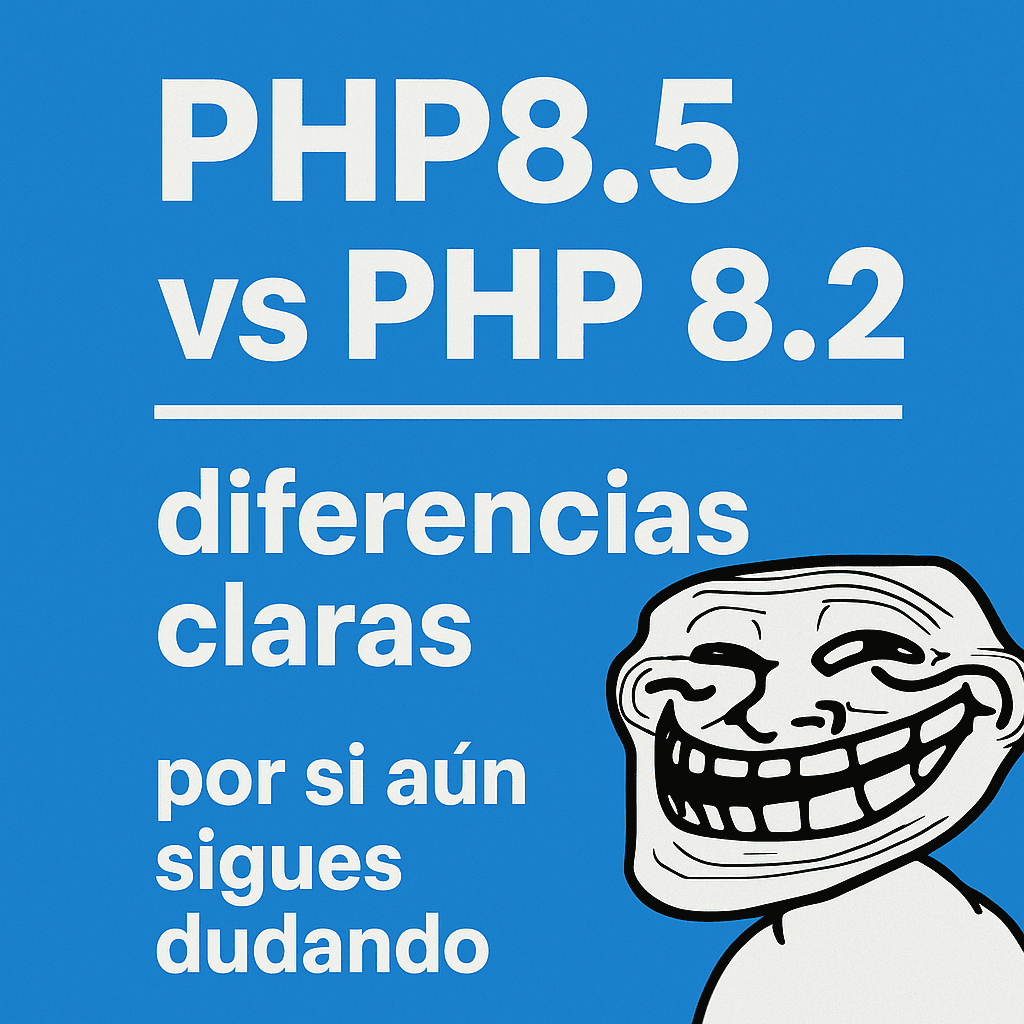Technical analysis for developers—direct, no fluff, only what’s actually useful in production.
Performance: internal improvements you can feel
PHP 8.5 brings real optimisations in:
- HashTables: fewer reallocations and faster lookups in large associative arrays.
- JIT: refinements that optimise hot paths and reduce bailouts in CPU-heavy code.
- Internal calls: several internal functions consolidated C-level implementations, reducing overhead.
On systems that process large data, big JSON payloads, or massive arrays, the difference is measurable.
New functions and syntax: the things you’ll actually use
Below are the most practical additions and how they impact your daily development workflow.
Pipeline operator (|>)
Lets you chain transformations linearly, reducing nesting and improving readability and profiling.
Example:
Advantages:
- Left-to-right flow reading.
- Fewer stack frames when debugging transformation pipelines.
- Avoids nested calls that complicate profiling and tracing.
Convenience functions: array_first() and array_last()
No more hacks with reset() or end(). Clearer code and fewer bugs due to internal pointer references.
clone with (clone with modifications)
Enables structural immutability without rewriting constructors or creating endless withX methods.
Works great with readonly classes and preserves unchanged state.
Attribute #[\NoDiscard]
Marks APIs whose return value must not be ignored. Useful for transactions, security operations, and any function where the result is critical.
URI Extension
Replaces parse_url() inconsistencies with an RFC-compliant parser and immutable URI objects for manipulating paths/query params without breaking percent-encoding.
Other relevant improvements
- Full backtraces even in fatal errors — debugging becomes much faster.
- More mature fibers/async with less overhead.
- Improved DateTimeImmutable handling and date/timezone validation.
- Stricter types in properties and arrays, catching inconsistencies in development instead of production.
- Security improvements: hashing, validations, and deprecations of unsafe functions.
Practical impact: Laravel and WordPress
Laravel
- Faster validations and serialisation.
- Reduced memory cost in Eloquent and castings.
- Jobs and exceptions with more manageable traces in production.
WordPress
- Better performance in heavy hooks and intense query loops.
- Fewer bottlenecks in large installations (including WooCommerce).
- More useful exceptions when debugging problematic plugins.
Compatibility and deprecations
Plan your upgrade: review plugins, PECL extensions, and dependencies. Pay attention to deprecated functions like utf8_encode()/utf8_decode() and older filter_var() filters. If your project contains a lot of legacy code, prepare an automated test checklist.
Should you update now?
Yes, if: you handle APIs, serious traffic, workers/cronjobs, or use modern frameworks. Update — but do it with a proper test suite (unit, integration, smoke) and a plan for broken dependencies.
Don’t forget to:
- Run the entire test suite in a staging environment with PHP 8.5.
- Verify PECL extensions and native library versions.
- Audit third-party plugins (in WP) before moving to production.
